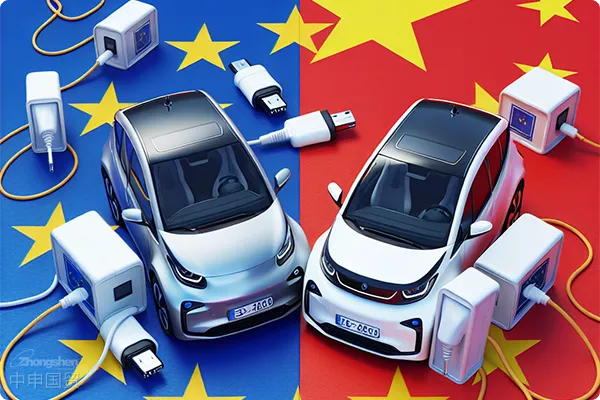- Shanghai Zhongshen International Trade Co., Ltd. - Two decades of trade agency expertise.
- Service Hotline: 139 1787 2118
In recent years, with the rapid development of the global EV market, trade relations between China and Europe have become increasingly tense. Particularly in the EV sector, frictions between both sides continue to escalate. Recently, China and the EU initiated dialogue on EV trade issues, attempting to resolve disputes through negotiations.
After the trade war rhetoric, China-EU dialogue begins. The negotiation topic is EVs - following prolonged investigations, the European Commission decided to impose tariffs up to 38%, while Beijing responded sternly by creating barriers for other European exports. The EU essentially claims Chinese EVs receive unfair government subsidies, while China accuses Europe of protectionism and trade rule violations. Despite clear disagreements, both sides have now decided to initiate dialogue.

Chinese Commerce Minister Wang Wentao and European Commission Vice President Valdis Dombrovskis held talks and agreed to launch negotiations. The BBC reported an EU spokesperson describing the Wang-Dombrovskis call as sincere and constructive, stating they will maintain multi-level engagement in coming weeks. This indicates both sides recognize dialogues importance and maintain open, cooperative attitudes for future negotiations.
According to ANSA, after Wang met German Vice Chancellor Robert Habeck, Chinas Commerce Ministry stated that if the EU sincerely comes to the negotiation table regarding reasonable EV issues, China is willing to conduct dialogue and consultations on EV concerns to avoid trade friction escalation professionally. This shows Chinas positive attitude toward resolution through negotiation.
However, the EU continues opposing Chinas EV financing methods, claiming Chinese government subsidies create unfair competition. The EU argues these subsidies make Chinese EVs significantly cheaper than European counterparts, creating immense competitive pressure. In response, China threatens appealing through WTO dispute mechanisms to firmly defend legitimate rights, indicating potential legal recourse if negotiations fail.
Against this backdrop, China-EU negotiations become crucial. As EVs represent the automotive industrys future with enormous market potential, their cooperation and competition affect not only bilateral economic interests but also global EV market development. Thus, negotiations must balance respective concerns for mutual benefit.
In conclusion, China-EU dialogue on EV trade marks an important step in resolving trade frictions. Despite clear disagreements, dialogue offers hope for mutually beneficial solutions. Both sides should maintain open, cooperative attitudes to jointly advance EV industry development and contribute to global sustainable growth.
Related Recommendations
? 2025. All Rights Reserved. 滬ICP備2023007705號-2  PSB Record: Shanghai No.31011502009912
PSB Record: Shanghai No.31011502009912









